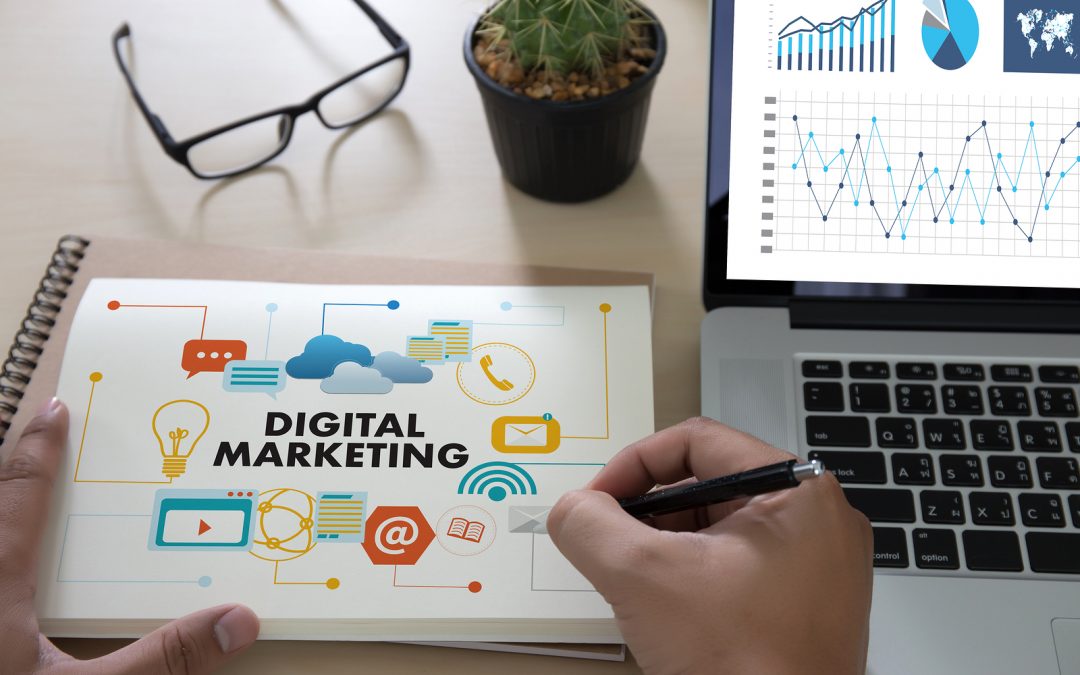Marketing has come a long way from the days of print ads, billboards, and TV commercials. With the rise of the internet and digital technology, marketing has evolved into a much more sophisticated and targeted practice. Today, digital marketing is the go-to strategy for businesses of all sizes and industries. However, with this shift towards digital marketing, many have begun to wonder whether offline marketing will be completely replaced by its digital counterpart. In this blog post, we will explore the arguments for and against the replacement of offline marketing by digital marketing.
Arguments for the Replacement of Offline Marketing by Digital Marketing
One of the main arguments for the replacement of offline marketing by digital marketing is the reach and targeting advantages that digital marketing provides. With digital marketing, businesses can reach a global audience with just a few clicks. Social media platforms like Facebook, Twitter, and Instagram have millions of users, making it easy for businesses to target their ideal customer with precision. Additionally, digital marketing allows businesses to track and analyze customer behavior, which can help refine marketing efforts and increase conversions.
Another advantage of digital marketing over offline marketing is cost-effectiveness. Compared to traditional marketing channels like print ads and billboards, digital marketing is often much more affordable. For example, pay-per-click advertising on search engines like Google and Bing allows businesses to only pay when someone clicks on their ad, making it a highly cost-effective advertising option.
The COVID-19 pandemic has also accelerated the shift towards digital marketing. With lockdowns and social distancing measures in place, offline marketing events and campaigns have been severely impacted. Digital marketing has provided a lifeline for many businesses, allowing them to continue to reach customers and promote their products and services even during a pandemic.
Lastly, there are countless examples of successful digital marketing campaigns. From viral social media posts to highly-targeted email campaigns, digital marketing has proven to be a highly effective way to reach and engage customers.
Arguments against the Replacement of Offline Marketing by Digital Marketing
While digital marketing may have its advantages, there are still many reasons why offline marketing should not be completely replaced. One of the main benefits of offline marketing is the ability to provide a personal touch and sensory experience. For example, attending a live event or participating in a product demonstration can create a much stronger emotional connection with a brand than simply viewing an online ad.
Another reason why offline marketing should not be replaced is the importance of a balanced marketing approach. While digital marketing can provide a global reach and targeted advertising options, offline marketing can provide the opportunity for direct, personal interactions with customers. A hybrid approach combining offline and digital marketing strategies can provide the best of both worlds.
There are also numerous examples of successful offline marketing campaigns. From experiential marketing campaigns that create unique and immersive experiences to creative print ads that capture the attention of passersby, offline marketing can still be highly effective in reaching and engaging customers.
Experiential Marketing Agencies and the Importance of Offline Marketing
One type of offline marketing that has gained popularity in recent years is experiential marketing. Experiential marketing is all about creating memorable and immersive experiences that engage customers on a deeper level. This can include everything from live events and product demonstrations to pop-up shops and interactive installations.
Experiential marketing agencies specialize in creating and executing these types of campaigns. They have the expertise and resources to create unique experiences that connect with customers in a way traditional marketing cannot. By partnering with an experiential marketing agency, businesses can create unforgettable offline marketing campaigns that leave a lasting impression on customers.
Conclusion
In conclusion, while the rise of digital marketing has certainly changed the marketing landscape, offline marketing agency is unlikely to be completely replaced. Both offline and digital marketing have unique advantages, and a balanced approach combining both strategies is likely the most effective.
Experiential marketing agencies can play a crucial role in creating memorable offline marketing campaigns that engage customers on a deeper level. Ultimately, the future of marketing will be a hybrid approach that leverages the strengths of both offline and digital marketing to create a comprehensive and effective marketing strategy.
FAQs
Q: What is the difference between offline marketing and digital marketing?
Offline marketing refers to any marketing strategy not involving the internet or digital technology, such as print ads, billboards, and live events. Digital marketing, on the other hand, involves using digital technology to promote products and services, such as social media marketing, email marketing, and pay-per-click advertising.
Q: Will offline marketing be completely replaced by digital marketing?
While digital marketing has many advantages, it is unlikely that offline marketing will be completely replaced. Both strategies have their unique advantages, and a balanced approach that combines both offline and digital marketing is likely the most effective.
Q: How can businesses incorporate both offline and digital marketing strategies in their marketing plans?
Businesses can incorporate both strategies by creating a hybrid marketing plan that leverages the strengths of both offline and digital marketing. For example, a business could use social media to promote an upcoming live event or use email marketing to follow up with customers who attended an in-person event.
Q: Can small businesses implement offline and digital marketing strategies?
Small businesses can implement offline and digital marketing strategies even with a limited budget. Small businesses can implement many cost-effective offline marketing strategies, such as community events, sponsorships, and referral programs, and digital marketing strategies, such as social media marketing, email marketing, and search engine optimization.



